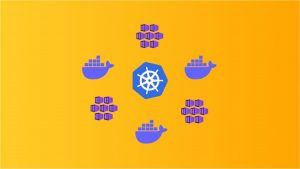Docker & Kubernetes Interview Readiness Course
Description
About Your Instructor
Dear Student,
I am super excited to have you in this course, let’s learn and grow together.
I have 11 years and 8 months of experience working in the IT industry with many International projects/ clients in tons of technology stacks. I have put all my experience into this course to make you successful in 2022.
Check my LinkedIn Profile
Check out Q&A and Career Guidance Facebook Group
Happy Learning!
After this course you will build a good knowledge of Docker, Kubernetes and different components of the Kubernetes cluster and this knowledge is going to help you easily crack interviews by answering the questions.
In this course you will learn everything about Docker and Kubernetes, we will start by learning why we need docker, what is Docker, the advantages of using docker.
Architecture/working of docker and its components.
We will also talk about some of the best practices that should be followed while using Kubernetes.
Then we will move on to understand the different deployment strategies that we have been following and what are the limitations of those approaches.
Why containerization is the best deployment strategy available now.
Why we need Kubernetes.
What problem does Kubernetes solves.
2-What is Container, Docker, Container Deployment and Challenges
3-What is Kubernetes
4-Kubernetes cluster and concept of Node
5-Overview of Worker and Master Node and What is Namespaces
6-Worker Node, Kubelet, POD, Container
7-Master Node component – API Server
8-Master Node component – Controller Manager and its types
8-Master Node component – Scheduler
9-Master Node component – etcd key value store
10-Kubernetes Virtual Internal Network
11-Deep Dive into POD and Service component
12-Replica and ReplicaSets
13-What is Deployment, how deployment works What is, Kubectl, Helm chart
14-Options available for running Kubernetes cluster – Minikube, Azure Kubernetes Service, Elastic Kubernetes Service, Google Kubernetes Service
What Will I Learn?
- You will know learn about Docker
- You will learn the working of Docker and its components
- You will learn about Kubernetes
- You will learn about Architecture of Kubernetes
- You will learn about different components in Kubernetes cluster
- You will learn about Deployment and different ways of doing deployment on Kubernetes cluster

